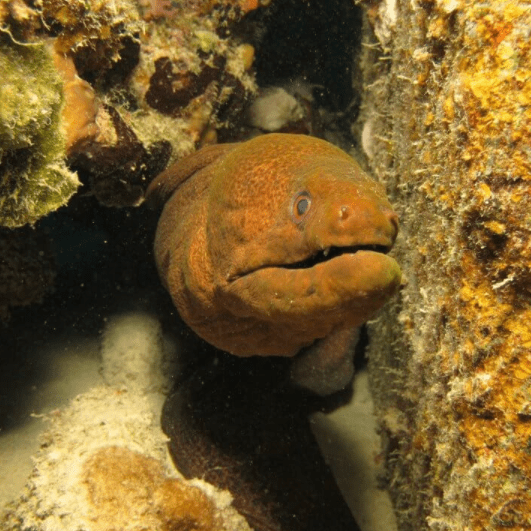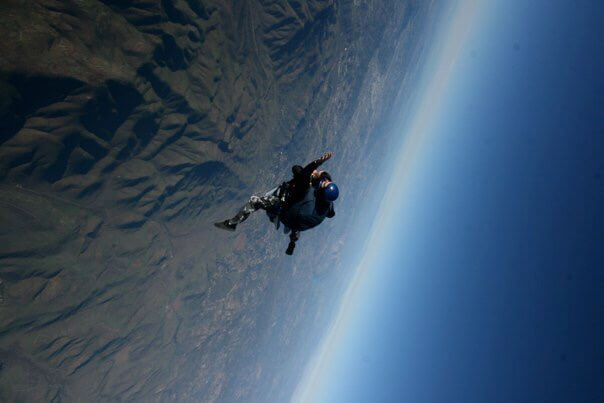The need to explore. The wanderlust. The insatiable thirst to drink the wild air and explore the unknown (provided a shower and comfortable bed is nearby of course), is a concrete state-of-being that permeates every aspect of living.
Unbeknownst to many, is the fact that wanderlust junkies can use their addiction to further their career with the expanded skills and business acumen that traveling can develop. The adventurous spirit can learn quite a bit about life and career success while out in the jungle getting eaten by bugs.
Here are some valuable lessons traveling teaches us that can help your career and improve your work and home life.
Stepping Outside Your Comfort Zone Makes Uncomfortable Situations Decidedly More Comfortable
The comfort zone is both a necessary good and unavoidable evil. We survive in it on instinct—but we also fail to thrive in it. Camping in Sinai desert, coming face-to-face with a giant moray eel at the Great Barrier Reef, or trekking through hidden caverns filled with bats, are experiences far removed from the creature comforts of Western life. But it’s these experiences that build our tolerance to risk and allow us to get comfortable with the idea of being uncomfortable.
When you are ok with discomfort, you not only adapt to new and unknown projects, people, and ideas, you also have room to push boundaries and innovate—traits that are invaluable to any career or industry.
Imagination and Innovation Grow Exponentially Based on the Frequency of Travel
 Having the ability to “imagine” is part of the human experience. This ability is within everyone, even though some have more active and vivid imaginations naturally.
Having the ability to “imagine” is part of the human experience. This ability is within everyone, even though some have more active and vivid imaginations naturally.
False assumptions about imagination defined as a skill set often put the thought process into a have or have not category amongst adults. Rather than a muscle that can be stretched and expanded, it is seen as a label that one is born possessing. This one has an active imagination, and this one is… good at math? This is bull of course. You want to have an active imagination? You want to stretch your creativity to new heights? You can.
Travel. It is that simple.
Traveling is something that pushes us, and the experience of doing and seeing things outside of our normal day-to-day niche causes us to expand upon our normal way of thinking and reach a mental state that creates new neurotransmitters and pathways. The experience of doing so expands everything in our mind far beyond a reach we were previously capable. This expansion not only helps any chosen career path, but also every other area of life, whether it be relationships, hobbies, or overall wellbeing.
Planning is Necessary, but Planning for the Unexpected is Just as Necessary
Being able to think on your feet and adapt to change is probably one of the most crucial abilities in our modern, constantly on-the-go world. If you work at an agency, or any company that involves a lot of moving parts attempting to work together cohesively at rapid speed, then you have to be organized to function efficiently. But what happens when the things you plan for don’t work out? Or unexpected hurdles, twists, and forks wreck havoc on your plans? Going into a tailspin of anxiety is not an option when you have clients, coworkers, and projects that you are accountable for making successful.
 Two things humans are not very good at: 1) accepting things we cannot change and 2) adapting to unexpected change. A static mind that has fallen into a routine will find it hard to overcome new challenges, handle stressful situations, and envision new goals. A person who adapts well to different situations and can react accordingly already has the qualities of a leader. Traveling helps us surpass these shortcomings and develop these leadership skills.
Two things humans are not very good at: 1) accepting things we cannot change and 2) adapting to unexpected change. A static mind that has fallen into a routine will find it hard to overcome new challenges, handle stressful situations, and envision new goals. A person who adapts well to different situations and can react accordingly already has the qualities of a leader. Traveling helps us surpass these shortcomings and develop these leadership skills.
When you travel, no doubt you make plans. You make plans in the confines of what you can do, what is appropriate for the destination, your budget, and desires. From experience, it is safe to say that about 50-70% of these plans will not go according to plan. It can be stressful, but you will find it only adds to the adventure. It may be chaotic, but when your survival is at stake, you manage to find order within the chaos. Navigating unplanned roads and twists in your landscape will help you in life, in your job, and in your overall career path. Besides, once you have successfully backpacked through Europe after running out of money, taken a mystery detour with new friends, and found your way after getting stranded and robbed on a train, you can handle anything.
Building Positive Relationships With Others Requires More Than Friendliness
A friendly disposition is a valuable personality trait. But friendliness alone does not a people-person make. Valuable communication skills such as collaboration, linguistic convergence, and effective dialog tailored to the desires of individuals and groups—these are skills needed to build effective relationships with people in the workplace.
When you travel, if you do so with others, you are likely contribute ideas, collaborate on trip-planning, and forego some desires to cater to common goals. When you travel as a pair or by yourself, you must still adapt and develop new communication skills to respect and build rapport with people in other cultures—often behind a language barrier and amidst conflicting cultural norms.
Knowing how to communicate with a wide variety of people, and the ability to collaborate and meet goals shared by a group, are “people” skills that travel teaches at an accelerated pace. Interacting with people from different corners of the world will make you a better listener, more compassionate, more willing to understand others, and better at communicating. Out there in the wild, you learn quickly to communicate and adapt to others in order to ensure your survival. At the office? Well, let’s be honest, isn’t it often a jungle in there as well?
Fear Only Lasts For a Split Second After Doing That Which You Fear
One of my first mentors told me at a young age, that the one thing that would ever hold me back from doing something (or saying something or being something) is the fear behind it.
What adventures teach us is that the feeling of fear and dread only lasts about a split second after starting to act on whatever it is that you fear. What follows is either a deep feeling of satisfaction or adrenaline, hence why so many extreme sports become addictive.
When traveling through Australia, there was an opportunity to bungee jump at the highest point—atop the canopy of the Daintree Rainforest. This was not a first bungee jump, but it serves as an example of a process for moving through fear rather than away from it, with the feelings comfortably alongside you like an old friend. When you do this, fear is not the paralyzer but the catalyst that wakes you up and propels you forward. When you jump off a platform into a rainforest canopy, instinctually, for a very split second, you have the same physiological response as a fall to your death. Your stomach drops, your breath stops, and the world freezes in time. Then, just like that, it is over. Any fear transcends into the biggest adrenaline rush imaginable and the most alive you can possible feel.
Back on solid ground, and in the business world, one thing becomes very clear. Being fearful of proposing a new idea, of falling, or even failing, is nothing compared to that jump. Being afraid becomes something you carry with you—you notice it, but it does not paralyze you. You welcome it, and it no longer controls you. As a result, the very act of taking risks, speaking up with new ideas, and trying new strategies becomes easier.




